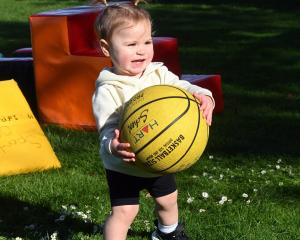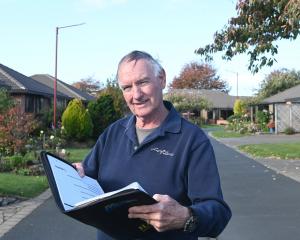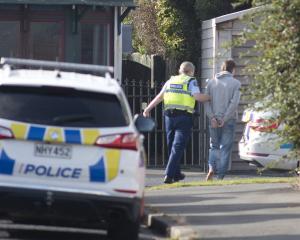
About 80 people at the Glenroy Auditorium heard Unicef NZ executive director Vivien Maidaborn speak about the initiative.
Speaking to the Otago Daily Times yesterday, Ms Maidaborn said the programme would add to existing Unicef programmes that involve child protection, trauma recovery, provision of water and sanitation, maternal and infant health, and education.
The programme was unique because of its focus on teenagers, she said.
''We're fundraising for the group that we're noticing is most vulnerable in the ongoing war, which is the teenagers.''
One in three people in Lebanon were Syrian refugees, Ms Maidaborn said.
And as Syrian children who had fled to Lebanon grew into teenagers, she said, they needed proper education urgently.
''[The programme will] keep young people in touch with technological developments that are happening for teenagers in the rest of the world,'' Ms Maidaborn said.
''And [will] also [do] cross-cultural work, because what's increasingly clear is that this war isn't going to end quickly.
''Syrian youth need to feel good about working with Palestinians, Lebanese, Iranians - with people from across the Middle East, for the future of the Middle East.''
She hoped New Zealanders, and the New Zealand Government, would see the need to give more money to groups working in the region.
Ms Maidaborn supported the recent campaign to get New Zealand to double its refugee quota, but said she could not justify throwing Unicef's weight behind it, because ''it was a distraction''.
Even if New Zealand's refugee quota doubled, it would be a minuscule fraction of the people fleeing Syria.
''It just felt insulting for us to be saying we were helping.''
Monetary support, such as the $4.5million in additional aid money New Zealand had announced it would be putting into the Middle East, was more ''constructive'', although it could always be more.
She hoped events like the launch last night, which featured a virtual reality tour of a refugee camp, would inspire New Zealanders to feel involved in the Middle East crisis and give money to organisations working there.












